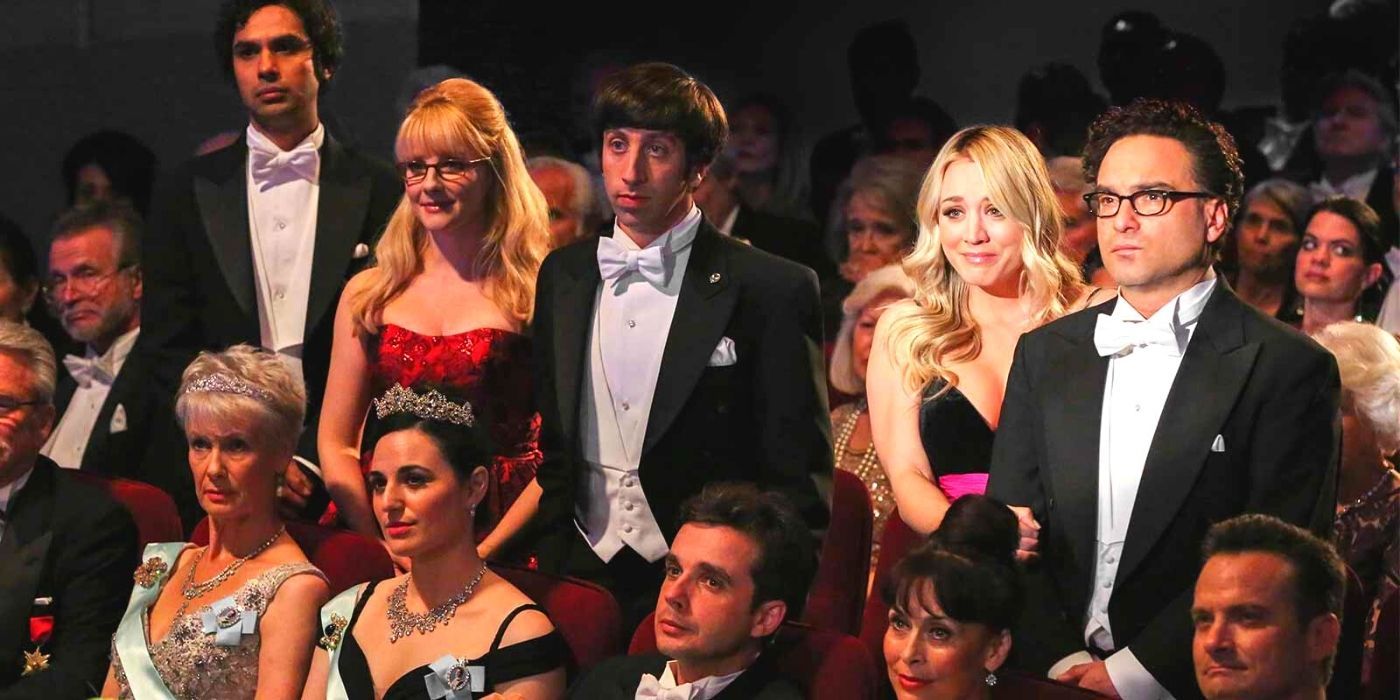
The Big Bang Theory's finale kept things fun and light, but it hints at the darker side of Sheldon's (Jim Parsons) friendship. Despite an uneven season 12, the CBS sitcom delivered a satisfying send-off for the Pasadena gang. Yet, the finale's title and the events that transpired in the last episode highlights a more serious meaning behind the show's overall depiction of Sheldon.
After months of working on their Super Asymmetry paper, Amy (Mayim Bialik) and Sheldon ultimately nabbed the much-coveted Nobel Prize in Physics with their friends nothing but supportive of their endeavors all throughout. In order to wrap up every single lingering plotline, The Big Bang Theory ended with a one-hour special with its final episode seeing the gang traveling to Sweden for the Coopers' acceptance ceremony. Aptly titled "The Stockholm Syndrome," the episode was a roller coaster of emotions mostly focused on Sheldon's relationships with his friends.
While The Big Bang Theory finale makes sense as it refers to the gang's trip to Stockholm and eventual return to Pasadena following the Nobel Prize ceremony, it also has a different meaning - one that implies the dark nature of Sheldon's friendships. The term "Stockholm Syndrome" is also the name of a condition in which hostages develop an alliance with their kidnappers the longer they stay in captivity. Looking back at all the years of The Big Bang Theory, this could also apply to the dynamic between Sheldon and the rest of his gang, considering he's not too easy to be around.

This idea is further highlighted by the events leading to Sheldon and Amy's acceptance of their Nobel Prize. Since The Big Bang Theory spent too much time tackling this storyline, essentially relegating the rest of the cast to side characters, they did try to rectify it by giving the Hofstadters and Wolowitzes their mini-arcs in the finale. For Leonard (Johnny Galecki) and Penny (Kaley Cuoco), it was revealed that the pair were expecting their first child together - an unexpected narrative turn after the latter was adamant she didn't want kids. Meanwhile, Howard (Simon Helberg) and Bernadette (Melissa Rauch) were anxious over being away from their children. As it is usually with Sheldon, he threw a tantrum because he wanted to be the center of attention. In the end, despite all his friends threatening to not attend the ceremony, they still stayed and watched him accomplish his biggest life goal thus far. This is before Sheldon had the chance to apologize for his selfishness - something that he wouldn't have realized if Amy hadn't confronted him about it.
Loyal viewers of The Big Bang Theory know that this wasn't the first time the rest of the gang relented. They have repeatedly tolerated Sheldon's behavior for years, regardless of how cruel or insensitive he was being, and it's not like they didn't know he was almost always morally wrong. Instead of facing the fact that he was simply difficult, they made excuses for him and justified his behavior to other people. This is essentially like what abductees do for their kidnappers when suffering from Stockholm Syndrome. Whether or not having the finale's title as a reflection of the dark nature of Sheldon's friendship was intentional is unknown, but this interpretation sure makes sense.
from ScreenRant - Feed https://ift.tt/320UN1E

0 Comments